Commons war debates of the past
- Published
The House of Commons was recalled last week to decide whether the UK should join in air strikes against Islamic State in Iraq. How have previous debates and votes on war gone?
Syria - 2013
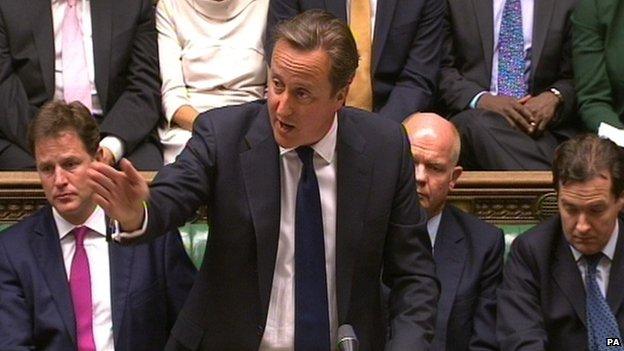
The government was defeated over its call to join in US-led action against Bashar al-Assad's government to deter the use of chemical weapons. MPs rejected the idea by 285 votes to 272 - a majority of 13. Thirty Conservative and nine Liberal Democrats voted against the government's motion, which Labour also opposed.
"I strongly believe in a tough response to the use of chemical weapons," said Mr Cameron afterwards, "but I also believe in respecting the will of this House of Commons... It is clear to me that the British Parliament, reflecting the views of the British people, does not want to see British military action. I get that and the government will act accordingly."
The government motion on air strikes against Islamic State specifically precludes action in Syria for this reason.

Libya - 2011
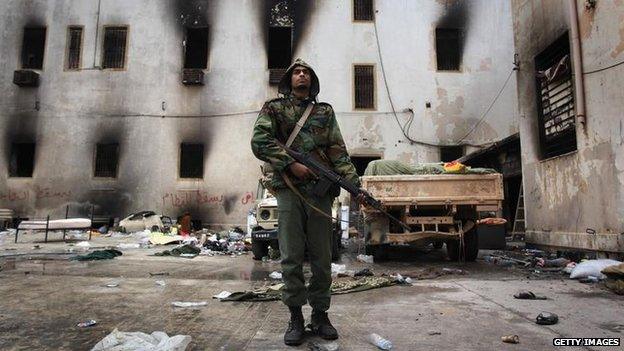
MPs voted overwhelmingly to support a United Nations resolution allowing "all necessary measures", short of bringing in an occupying force, to be used to protect Libyan citizens from the Gaddafi regime. David Cameron said this would help avert a "bloody massacre" in the north African country, which was in the throes of a rebellion. He also promised this would not become "another Iraq", after some MPs warned of potential mission-creep. The government motion, backed by Labour, won by a majority of 544.

Iraq - 2003
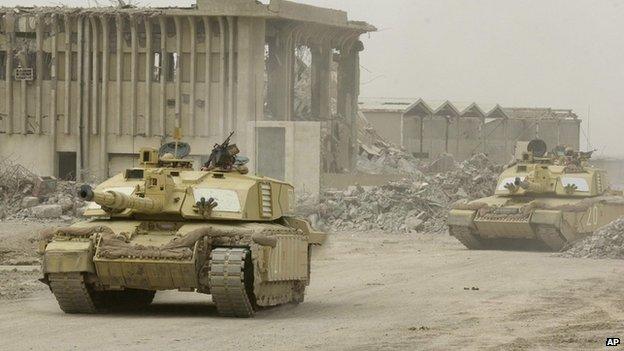
This was the first time the UK government had sought approval in advance for military action. This set a precedent, although ministers are not constitutionally bound to consult in this way, as they are able to exercise the Royal Prerogative, external on such matters. Labour Prime Minister Tony Blair said force was needed against Saddam Hussein's regime.
"This is a tough choice indeed, but it is also a stark one," he said. "To stand British troops down now and turn back or hold firm to the course we have set. I believe passionately that we must hold firm to that course."
The motion backing the government's position, supported by the Conservatives but opposed by the Lib Dems, was passed by 412 votes to 149. But an earlier amendment opposing the government's position was defeated by 179 votes - but this included 139 Labour backbenchers rebelling against the government.

Kosovo - 1999
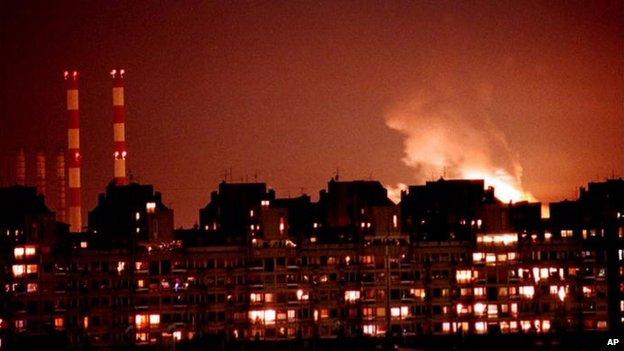
Debates took place over Nato's bombing campaign in Serbia, which started in March over President Slobodan Milosevic's treatment of Kosovo Albanians. On 20 April 13 Labour MPs tried and failed to force a vote in the issue. Asked if Parliament would be able to give its full endorsement to the military action in the future, the Armed Forces Minister Doug Henderson told the BBC: "There is no precedent for this, but the House of Commons will be consulted very regularly... One has to understand the constitutional position. Parliament does not decide who takes military action - it is the government who decides that under prerogative."
But, presaging the demand that led to the vote over Iraq in 2003, Liberal Democrat foreign affairs spokesman Menzies Campbell countered: "The political requirements demand that you have a substantive motion in the House of Commons."

Gulf War - 1991
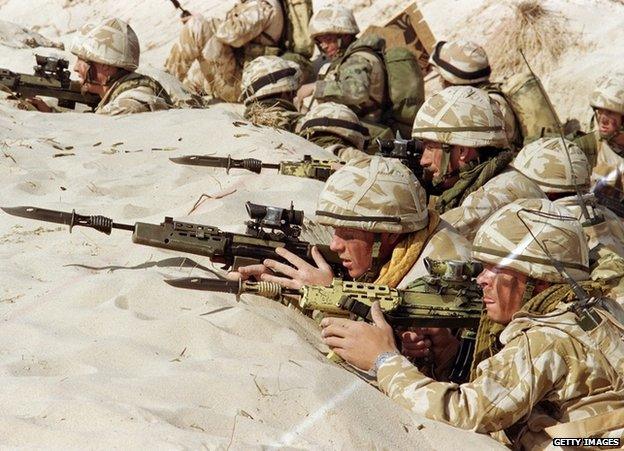
Just before midnight UK time on Wednesday, 16 January, United States, British and allied planes launched bombing and missile strikes on targets across Iraq, marking the end of five months of diplomacy and military build-up in response to Iraq's invasion of neighbouring Kuwait. Parliament debated events on the following Monday, 21 January. "We did not want this conflict," Conservative Prime Minister John Major said. "We tried hard, very hard, to avoid it. We failed because, to keep his spoils, Saddam Hussein was prepared for conflict."

Falklands - 1982
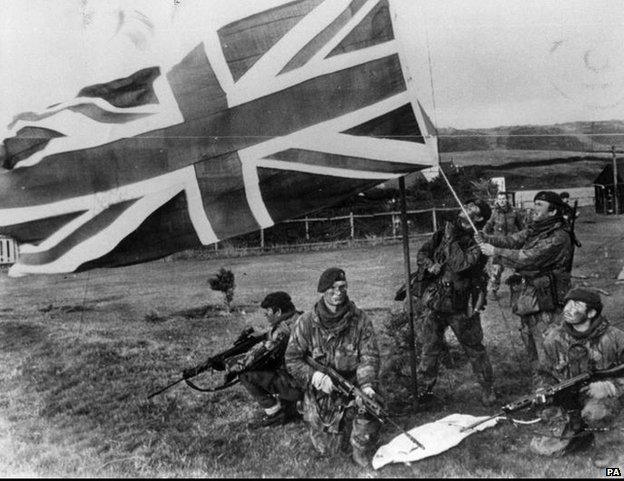
The House was recalled on Saturday, 3 April, the day after the Falkland Islands, a British colony in the South Atlantic, had been invaded by Argentina.
Conservative Prime Minister Margaret Thatcher told MPs there was a duty to liberate its people. "They are few in number, but they have the right to live in peace, to choose their own way of life and to determine their own allegiance," she said. "Their way of life is British; their allegiance is to the Crown. It is the wish of the British people and the duty of Her Majesty's Government to do everything that we can to uphold that right. That will be our hope and our endeavour and, I believe, the resolve of every Member of the House." A task force was sent and the Falklands' capital, Port Stanley, was liberated on 14 June.

Suez - 1956
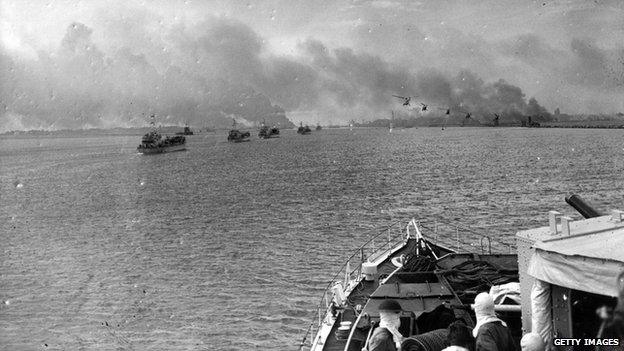
Parliament was recalled on 12 September over the crisis prompted by Egypt seizing and nationalising the Suez canal. "I submit to the House that it is quite certain that no nation has the right, unilaterally and in defiance of existing agreements, to remove its international character from the most important waterway in the world," said Conservative Prime Minister Anthony Eden. "To do so is entirely an illegal act."
Looking back to the situation faced before World War Two, he added: "Once again we are faced with what is, in fact, an act of force which, if it is not resisted, if it is not checked, will lead to others." But Labour leader Hugh Gaitskell urged gaining wider support for action against Egyptian President Abdel Nasser, asking "whether we are to press this case through the United Nations in accordance with the (United Nations) Charter or whether we are to try to decide that for ourselves".

World War Two Norway Debate - 1940
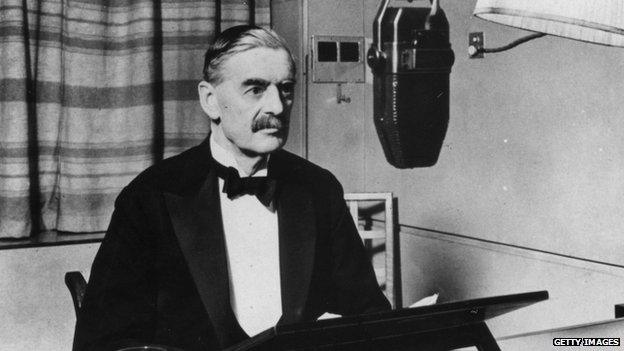
There were many discussions of Britain's situation during World War Two, but the best known is the Norway Debate of 1940, regarded as one of the most dramatic events in the history of Parliament.
On 7 May, MPs started a debate on Britain's failed campaign against German forces in Norway. Prime Minister Neville Chamberlain, who had pursued a policy of appeasement of Hitler during the 1930s, was assailed by some of his own Conservative MPs, most memorably Leo Amery. Closing his speech, he invoked the words of Oliver Cromwell to the Long Parliament of the 17th Century, telling Chamberlain: "You have sat too long here for any good you have been doing. Depart, I say, and let us have done with you. In the name of God, go." It is one of the best known parliamentary speeches of the 20th Century.
The debate turned into a vote of confidence, forced by Labour, on Chamberlain himself on 8 May. He won with a reduced majority, his credibility badly damaged. Chamberlain resigned two days later to be replaced as prime minister by Winston Churchill.

World War One - 1914
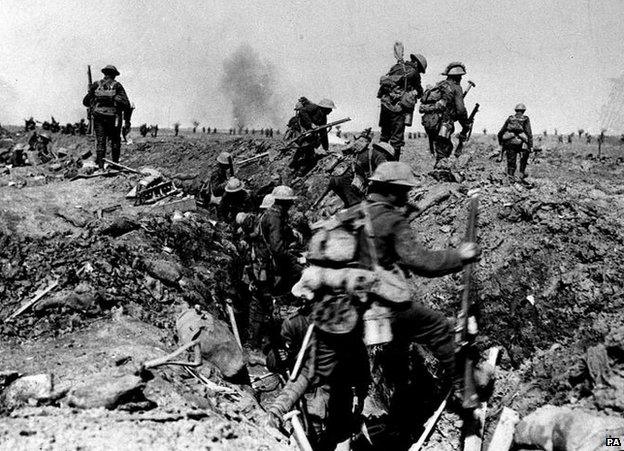
On 3 August, Foreign Secretary Sir Edward Grey informed MPs that it was "clear that the peace of Europe cannot be preserved". In the speech, external to a packed House of Commons he warned: "We are going to suffer, I am afraid, terribly in this war, whether we are in it or whether we stand aside."
In order to launch a rapid attack on France, Germany had requested free passage through Belgium. Britain regarded this as a violation of that country's neutrality, which it had agreed to defend. Sir Edward said Britain was honour-bound to support Belgium and France against German aggression.
No vote was taken on whether to enter war, but the Conservatives backed the government. Labour leader Ramsay McDonald raised doubts, saying: "What is the use of talking about coming to the aid of Belgium, when, as a matter of fact, you are engaging in a whole European war which is not going to leave the map of Europe in the position it is in now?"
War was declared at 23:00 the next day. Britain was the only Great Power to debate the matter in its parliament.